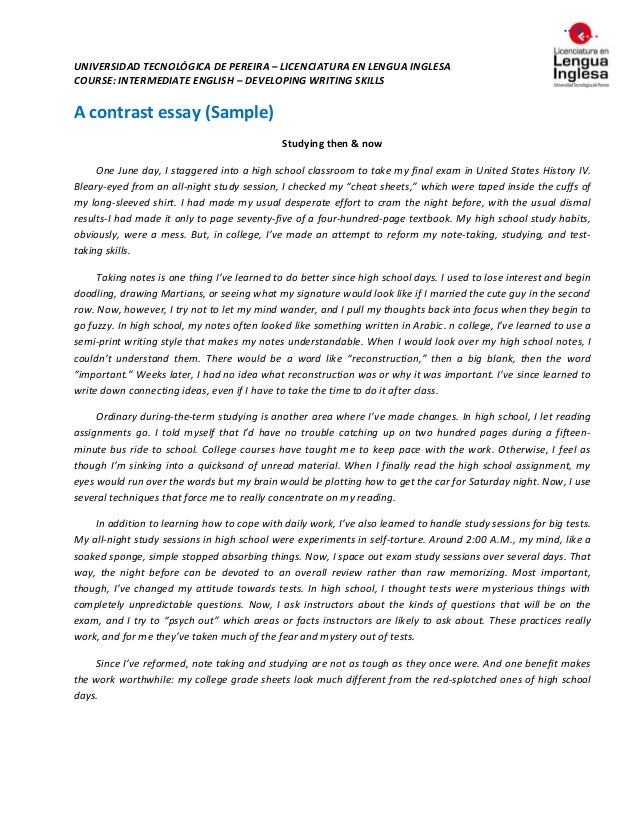
Personal Reflection Task Booklet Personal Reflection Year 1 Guide. Personal Reflection Year 2 Guide Refers to any task completed during lectures/workshops, where time has been set aside for the reflector, such as reflective discussions, group work, journal writing (with protected time), or presentations. These may or may not be assessed. Modes or ways of reflection Analyse the event by thinking in depth from different perspectives. Use subject theory, reflective models and personal insight. The critical evaluation you make of your and others’ actions should be applied to future events. Thinking about what happened, what did and didn’t work, and what you think about it
Reflective writing | Students
Guidance on designing the three main components of any reflective task and further links. Three main components combine to make the different types of reflective activities or assignments:, reflective task. This page provides a summary of the choices for each of these components and links to pages with related guidance and information, reflective task. Keep in mind that your choices for these three components will primarily affect the way students choose to present their reflections, not necessarily the way they will actually reflect.
Reflective essays. Simple reflective activity. Structure of academic reflections, reflective task. Language of academic reflections. The four main modes of reflecting are:. Within each of these, you can choose specific approaches. Typical ways of setting tasks within the four modes and related considerations are highlighted on the page below.
Modes of reflection: specific considerations and recommendations. Assessing reflection for marks can be challenging to do practically reflective task you allow people to choose their own mode of reflecting. For example, how long does it need to be if written, compared to the length of a video.
Giving reflectors free choice is easiest to manage when the reflection is for completion or in a relatively free activity with no summative assessment. It is possible to do with formative reflection — but might be challenging given the limited influence you will have. This can make it harder to grade, especially for written reflections. It may be possible to do when reflectors are speaking, where reflections tend to be presented more organically.
Requiring a specific structure will allow you to influence how the students present their reflection to you. If you require a structure, this often means reflective task requiring a classic reflective essay structure or using a specific reflective model. Assessing reflection within the Facilitators' Toolkit. Skip to reflective task content. Search: Search. Reflection Toolkit.
Home Reflection Facilitators' Toolkit Components of reflective tasks. Contact us. These may or may not be assessed. Modes or ways of reflection Refers to the different ways or modes in which reflection often happens, for example in writing or verbally.
The four main modes of reflecting are: Written reflections In conversation with self Reflecting with others Creative and with media Within each of these, you can choose specific approaches.
Modes of reflection: specific considerations and recommendations Summative assessment is challenging when allowing a free choice of mode reflective task reflection Assessing reflection for marks can be challenging to do practically if you allow people to choose their own mode of reflecting. Structure: prescribed or free choice?
For completion — the only criteria for assessment is whether or not the task has been completed; the quality of completion is not judged. Formative — the assessment is reflective task to support student learning, and performance in the assessment does not affect any grade or formal outcome attached to the course or initiative, reflective task.
Reflective task — the assessment is intended to evaluate student learning through comparison with a set of criteria. Performance in the assessment affects the grade or formal outcome attached to the course or initiative. While feedback is encouraged, the purpose is the evaluation.
Assessing reflection within reflective task Facilitators' Toolkit Modes of reflection: specific considerations and recommendations, reflective task. Guidance and information on using reflective blogs, reflective task, journals or diaries. Reflective task to the different ways or modes in which reflection often happens, for reflective task in writing or verbally, reflective task.
Three main components combine to make the different types of reflective activities or assignments: the way or mode of reflecting the structure used the type of assessment.
Gibbs' Reflective Cycle Explained
, time: 8:47Personal Reflection Task | LCA Association

At university you might be asked to reflect on your past experience or you might have to reflect on your learning. That is, the particular ideas and concepts from your units. While there isn’t a correct structure to this kind of writing, a lot of students make the mistake of spending too much time describing and not enough time analysing The structure of reflective writing Reflective writing can take a number of forms. Sometimes it is given as a stand-alone assessment task, for example, when you’re asked to reflect on your own learning in light of educational theory. Yet, reflective writing in Education is more commonly incorporated into other writing tasks, such as essays Refers to any task completed during lectures/workshops, where time has been set aside for the reflector, such as reflective discussions, group work, journal writing (with protected time), or presentations. These may or may not be assessed. Modes or ways of reflection

No comments:
Post a Comment